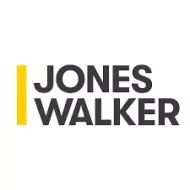- within Insurance topic(s)
The recently enacted omnibus federal tax bill included a provision that lowers the cap for gambling-related loss deductions and permanently adopts a TCJA-era limitation on business expenses, unbeknownst to many of those who advocated for and voted in favor of the legislation.
Prior to the implementation of the TCJA, gamblers were permitted to deduct "losses from wagering transactions" up to the amount of gains from such transactions, creating a loss cap of 100% of the gambler's winnings. However, "professional" gamblers could also deduct certain expenses incurred as ordinary and necessary business expenses in excess of net gambling winnings (gambling winnings that exceed gambling losses from wagering), and these business expense deductions were not subject to the section 165(d) cap. See Mayo v. Commissioner, 136 T.C. 81 (2011).
To restrict the ability to deduct gambling-related business expenses, the TCJA legislation inserted a definition for the term "losses from wagering transactions" to include "any deduction otherwise allowable under this chapter incurred in carrying on any wagering transaction", thereby subjecting expenses like travel, lodging, and meals to the loss cap. Originally, the definition applied from January 1, 2018, through December 31, 2025.
Public Law No. 119-21 modifies both the loss cap amount and the deduction language as follows:
SEC. 70114. EXTENSION AND MODIFICATION OF LIMITATION ON WAGERING LOSSES.
(a) IN GENERAL.—Section 165 is amended by striking subsection (d) and inserting the following: ''(d) WAGERING LOSSES.— ''(1) IN GENERAL.—For purposes of losses from wagering transactions, the amount allowed as a deduction for any taxable year— ''(A) shall be equal to 90 percent of the amount of such losses during such taxable year, and ''(B) shall be allowed only to the extent of the gains from such transactions during such taxable year.
''(2) SPECIAL RULE.—For purposes of paragraph (1), the term 'losses from wagering transactions' includes any deduction otherwise allowable under this chapter incurred in carrying on any wagering transaction.''.
(b) EFFECTIVE DATE.—The amendment made by this section shall apply to taxable years beginning after December 31, 2025.
Thus, beginning on January 1, 2026, to determine the eligible loss deduction, gamblers first determine 90% of their losses, then deduct that amount up to the extent of gains (if following the steps in order of how they appear in the statute). The resulting calculation impacts gamblers of all types, increasing the taxable income for winners over what they would have reported this year under the same circumstances, while creating scenarios where break-even and marginal loss years can result in taxation of "income" that was not netted by the gambler.
Now faced with a wave of constituent awareness and outcry about the changes, some legislators are rallying to fix what has been described as a mistake or oversight during the process, noting that the amended language creates potentially unfair scenarios, could drive high-volume players to unregulated games, and could have a significant negative economic impact on the gaming and hospitality sectors. Others have proven hesitant to address the issue given the nature of the legislation or are on the record as unfamiliar with the issues.
Given the volatile nature of the federal legislative process and the lack of clarity as to which limitation on losses would apply first in instances when order alters the calculation result, interested parties should monitor for any potential legislative changes or IRS guidance relating to section 165.
"The income tax is designed to tax actual income," [Cruz] said. "For example, playing poker for profession — not allowing them to deduct their losses means they're paying taxes not on their actual income."
The content of this article is intended to provide a general guide to the subject matter. Specialist advice should be sought about your specific circumstances.


